
OR
PM Dahal defends controversial HICDP as it courts serious controversy in Nepal
Published On: January 6, 2024 07:30 AM NPT By: Sajira Shrestha
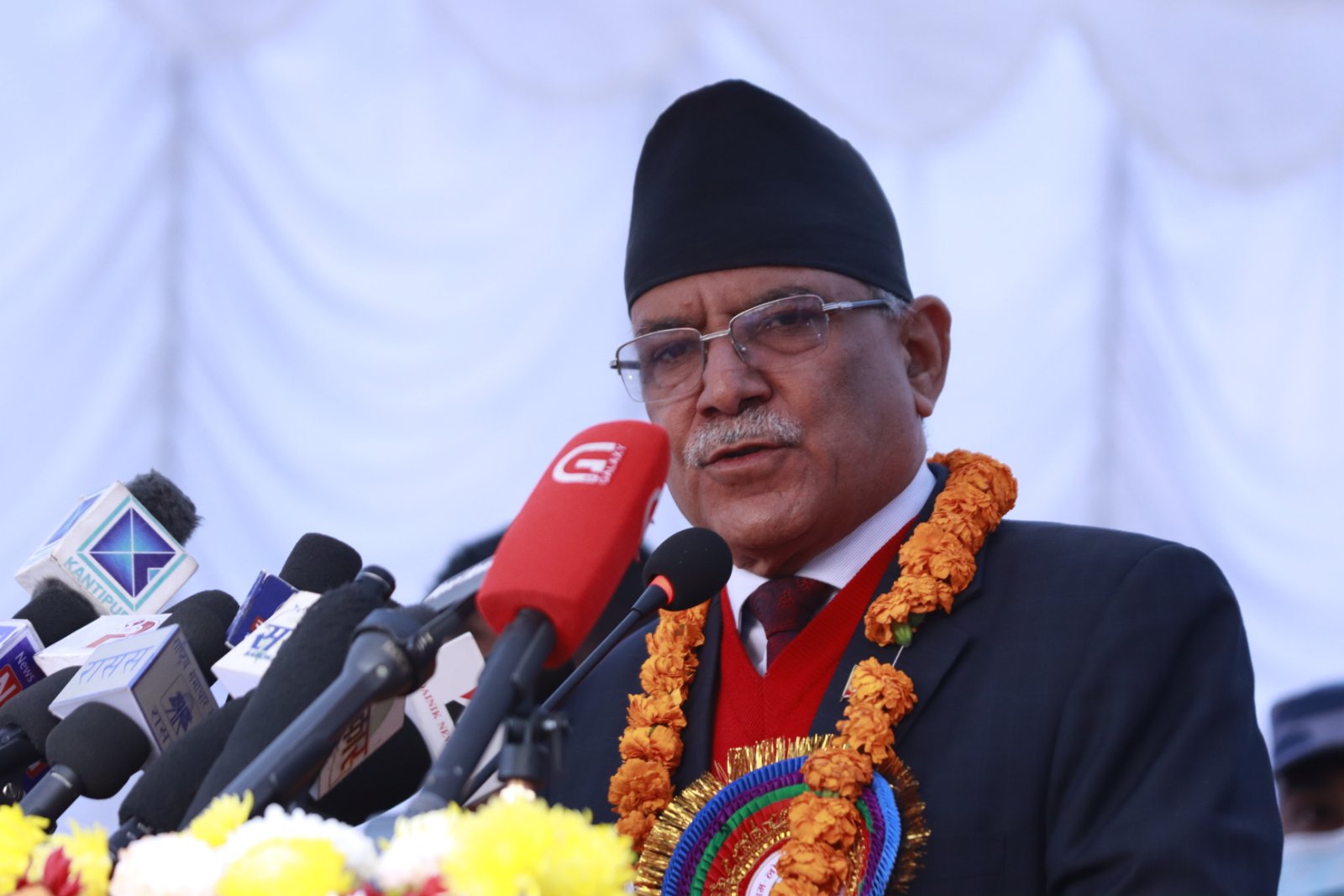
KATHMANDU, Jan 6: Amidst controversy surrounding an agreement between Nepal and India paving the way for the Indian government to provide direct grants to projects valued up to Rs 200 million in Nepal, Prime Minister Pushpa Kamal Dahal has clarified that the Indian Embassy in Nepal is not permitted to freely spend up to Rs 200 million as reported in media.
Prime Minister Dahal clarified that such assistance is spent in a transparent process and must be endorsed by the sectoral ministry and finance ministry, but not as reported in media that the embassy can fund the projects of its likings without the involvement of the host government.
Nepal and India signed four different agreements and memorandum and understandings during the recent two-day visit of Indian External Affairs Minister Dr Subrahmanyam Jaishankar. One of those agreements paves the way for the Indian government to provide direct grants to projects worth up to Rs 200 million in Nepal.
The limit for India's direct investment in a project has been increased from existing Rs 50 million to Rs 200 million as per the agreement on Indian Grant Assistance for High Impact Community Development Projects (HICDP) through government organizations or any other organizations. A cabinet meeting held on December 7, 2023 had decided to accept grant aid for the implementation of the HICDPs funded by the Government of India.
The program, initially known as the Small Development Project (SDP), allowed the Indian Embassy in Kathmandu to select and invest in projects independently. The then Prime Minister Surya Bahadur Thapa first approved such a project in 2003, allowing direct investment in projects worth up to Rs 30 million.
Subsequently, during Baburam Bhattarai's tenure as the prime minister, the amount was increased to Rs 50 million. A cabinet meeting held on December 23, 2019, changed the name of the Small Development Project Program to High Impact Community Development Project.
Originally contracted until August 5, 2023, the HICDP's deadline was extended for another three years during a cabinet meeting on August 1, 2023. Consequently, India can continue the program until August 5, 2026 as per the agreement signed between the Ministry of Finance and the Indian Embassy in November 2003.
The agreement has sparked discontent among various sectors, including political circles. Criticism has been voiced on social media platforms, with civil society members like Prem Singh Basnyat expressing dissatisfaction.
Former prime minister and senior leader of CPN (Unified Socialist) Jhalnath Khanal alleged that the agreement is a game against the sovereignty and sovereign rights of the Nepali people. Issuing a statement on Friday, former PM Khanal said, “An unimaginable anti-national agreement has been reached to allow foreign embassies to directly implement plans worth Rs 200 million. This is not only a negligent and anti-national agreement, it is also a game against the sovereignty and sovereign rights of Nepal and the Nepali people.
“I want to strongly oppose this agreement on behalf of all the patriotic Nepali people.” He also mentioned that if the government does not cancel this agreement immediately, Nepali citizens will be forced to come to the streets chanting slogans against the government,” he further said.
Likewise, Raghuji Pant, leader of the main opposition party, CPN-UML, asserted that the agreement would allow undue political influence, behavior and interference. Speaking at the State Affairs and Good Governance Committee meeting on Friday morning, he requested PM Dahal to reconsider the agreement saying that the agreement would allow external interference in internal affairs of the country.
Another UML leader Bhim Rawal alleged that Nepali Congress had the tendency to praise foreign powers and CPN (Maoist Center) Chairman Pushpa Kamal Dahal’s anti-national act before Indian rulers had been exposed through the agreement. Through his social media ‘X’, he urged people to come together to stop the act of making the country a colony of India.
Foreign affairs experts have also taken strong exception to the agreement. They have maintained that it is against the constitution for foreign governments to support Nepal's provinces and localities directly.
Responding to the controversy and criticisms against the agreement, Prime Minister Dahal assured that the Indian Embassy in Nepal will not be able to voluntarily spend up to Rs 200 million on the schemes. He said that the amount will be spent following a certain procedure.
Addressing the queries raised by members of the State Affairs and Good Governance Committee under the federal parliament on Friday, he stated, "India does not have the liberty to invest or spend wherever it wishes without following a specific process. There are set procedures for such actions. The expenditure can only occur through the designated process, whether within the municipality or elsewhere. I am aware of the concerns raised by the honorable lawmakers. We are also considering how to make it more practical."
A number of civil society members have also expressed concern over the agreement that allows India to directly fund projects up to Rs 200 million. They argued that such an agreement is detrimental to the interests of Nepal and the Nepali people.
Also addressing the parliamentary committee meeting, Prime Minister Dahal added that the electricity trade agreement with India is in the national interest. "There is no provision stating that only India will handle the construction. This government is committed and responsive to this issue," Prime Minister Dahal stated, adding, "Any country can assist us in advancing our project; they can invest. I want to clarify that.
You May Like This
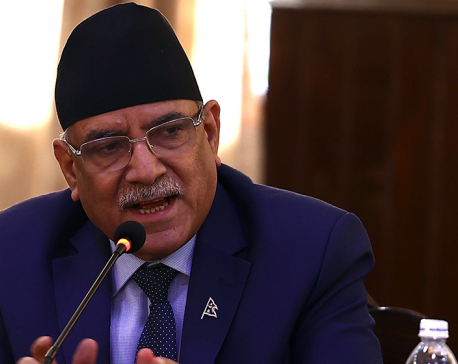
PM Dahal pledges to mandatorily implement Contribution-based Social Security Scheme
KATHMANDU, May 1: Prime Minister Pushpa Kamal Dahal pledged to compulsorily and strictly implement the Contribution-based Social Security Scheme from... Read More...
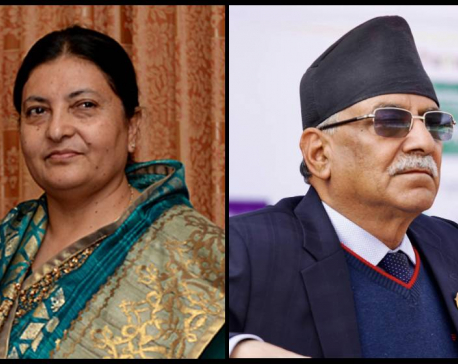
Prez Bhandari and PM Dahal extend best wishes on the occasion of Holi
KATHMANDU, March 6: President Bidya Devi Bhandari has wished peace, prosperity and happiness to all Nepali sisters and brothers at... Read More...
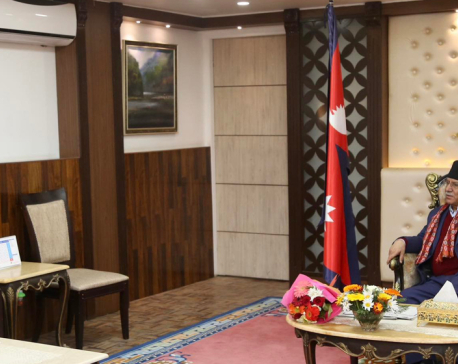
Chief Minister of Gandaki Province calls on PM Dahal
KATHMANDU, Jan 10: Chief Minister of Gandaki Province Khagaraj Adhikari called on Prime Minister Pushpa Kamal Dahal this morning. ... Read More...



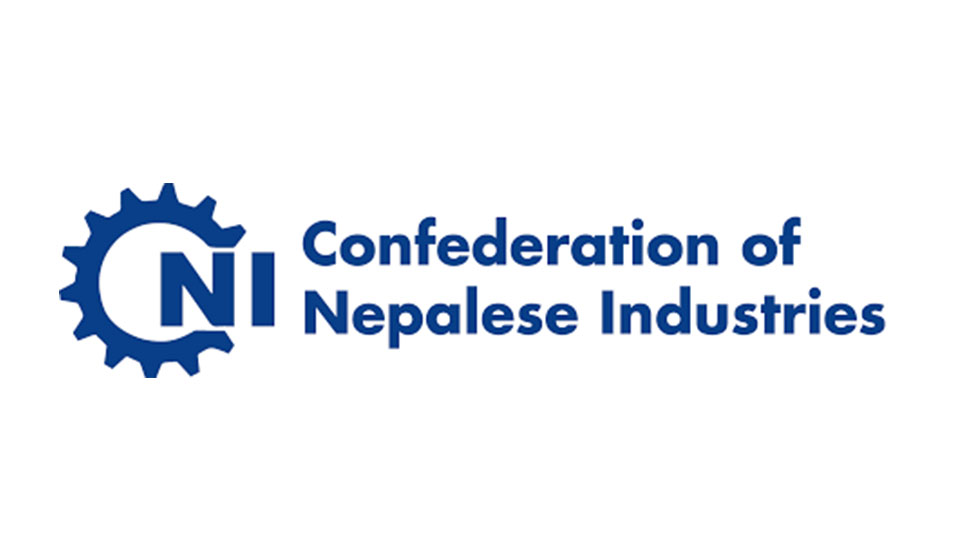
Just In
- Indian Ambassador assures of promoting India's investment in Nepal
- Global Shapers Community Kathmandu set to host second edition of Global Talk Series
- CNI President Agrawal highlights Nepal's conducive investment climate at Investment Summit
- Hearing on case against cricketer Lamicchane could not proceed today
- UML candidate Bhandari maintains lead in Bajhang
- Nepal Investment Summit (live)
- Second T20 match: Nepal loses to West Indies ‘A’
- Bajhang by-polls update: 400 ballots counted so far








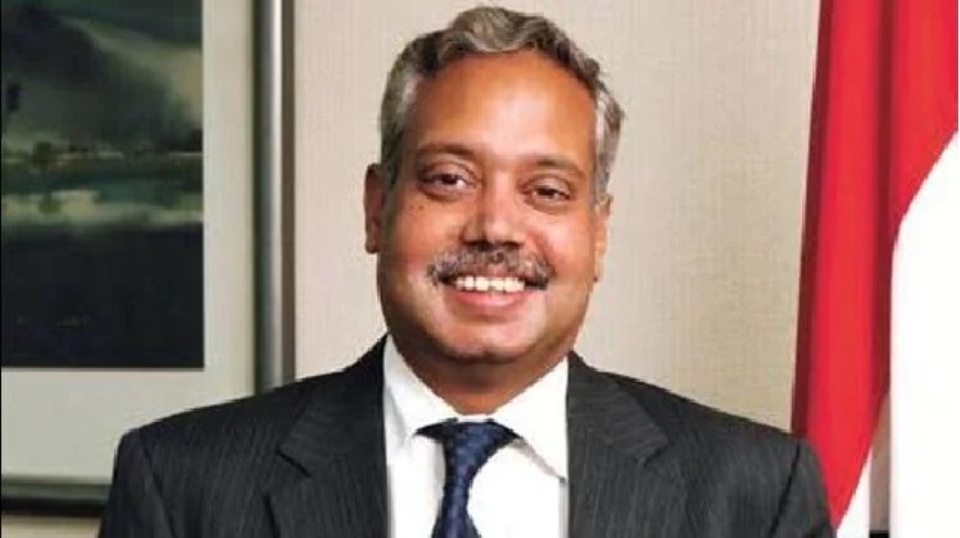




Leave A Comment